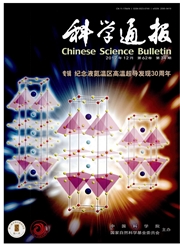

 中文摘要:
中文摘要:
大量各种功能的纳米器件的出现与发展迫切地需要能源供给,以满足纳米系统独立的、可持续的连续工作.从生活环境中收集能量制备纳米电池用于驱动这些纳米功能器件,是解决能源问题十分有效的途径.近年来,由纳米电池与纳米功能器件组成的全新功能纳米器件——自供能纳米系统,得到了快速发展.显而易见,纳米电池的制备是自供能纳米系统建立的关键,由于燃料电池可收集自然界乃至生物体内的能源并转化为电能,因此实现燃料电池微型化在自供能纳米系统研究中有着至关重要的意义.本文从单根全氟磺酸质子交换树脂(Nafion)纳米线的质子传导性能出发,结合了本课题组及其他学者的工作,对纳米燃料电池、纳米生物燃料电池、复合型纳米生物燃料电池以及由这些电池驱动的自供能纳米系统进行了简要介绍,并对自供能纳米系统的研究现状、面临的问题以及可能的研究趋势进行了简要评述.
 英文摘要:
英文摘要:
With the rapid progress in researches on nano-materials, a dramatically increasing number of nanoscale functional devices are developed, including nano-biosensors, nano-photoelectric sensors. Most of these nanoscale devices rely on external power supply to work sustainably. Although an energy storage unit is a choice for powering nanodevices, the large dimension of existed power sources has become one limited factor for the miniaturization of independently workable nanodevices. Therefore, a nanoscale power source capable of harvesting energy from the environment is an essential solution for building a "self-powered" nanosystem which is an integration of functional nanodevices and nano- enabled energy scavenging technologies. The successful development of such nanoscale power sources that match with nanodevices is significant for constructing self-powered nanosystems. The self-powered nanosystems will be widely used in industrial fields such as sensors networks, environmental and infrastructural monitoring, portable electronics, and healthcare. Referring to recent vigorously studies on exploiting self-powered nanosystems based on functional nanodevices and nano-batteries, it is obvious that the preparation of nano fuel cell is the key to the establishment of self-powered nanosystems. Fuel cells have many advantages over conventional batteries, such as high energy conversion efficiency, quick startup ability under low temperature, high energy density, and the feature of environmental friendly. What's more, through the technical route of fuel cells, chemical and biochemical energy, the most abundant energy available in nature or in vivo biosystems, can be converted to electrical energy from fuels such as methanol and glucose, which is meaningful to the development of in vivo implantable nanosystems. Therefore, more and more attentions of the scientific community in fields of nanoenergy and nanosystems have been paid to the researches on micro and even nano scale miniaturization of fuel cells. Our group has don
 同期刊论文项目
同期刊论文项目
 同项目期刊论文
同项目期刊论文
 期刊信息
期刊信息
